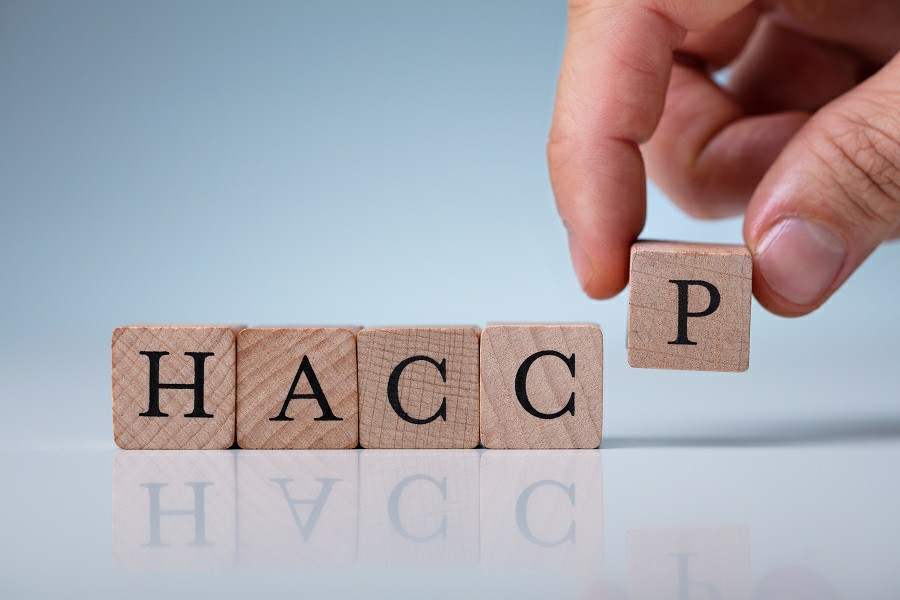Unlocking Food Safety: The Crucial Role of HACCP Certification for Irish Businesses in Dublin, Cork, Galway, and Beyond
In the fast-paced food industry, ensuring the safety and quality of the food served is paramount. For businesses across Ireland, particularly in bustling cities like Dublin, Cork, Galway, Limerick, Waterford, and Belfast, HACCP certification (Hazard Analysis Critical Control Point) serves as a key component in maintaining compliance with food safety regulations.
What is HACCP and Why is it Important?
HACCP stands for Hazard Analysis Critical Control Point, a systematic approach to food safety that identifies and controls potential hazards throughout the food production process. HACCP is recognized globally and is a mandatory requirement for food businesses in Ireland and the EU. This method not only ensures compliance with local and international food safety standards but also safeguards public health and enhances customer trust.
The Benefits of HACCP Training for Food Businesses
HACCP training offers a wide array of benefits for food business owners, restaurant managers, and food handlers:
- Regulatory Compliance: Equip your staff with the knowledge to adhere to Irish and EU food safety regulations.
- Risk Management: Learn how to identify, assess, and control food safety hazards.
- Enhanced Food Hygiene: Implement best practices that promote cleanliness and reduce the risk of contamination.
- Increased Business Reputation: A HACCP certificate instills confidence in customers and strengthens brand loyalty.
- Prevention of Foodborne Illnesses: Educate your team on the importance of safety protocols to minimize public health risks.
Understanding HACCP Principles
The core of HACCP lies in its seven principles, which guide businesses in developing an effective food safety management system:
- Conduct a Hazard Analysis: Identify potential hazards that may affect food safety.
- Determine Critical Control Points (CCPs): Establish points in the process where hazards can be prevented, eliminated, or reduced.
- Set up Critical Limits: Determine the maximum or minimum limits to ensure food safety.
- Establish Monitoring Procedures: Implement measures to monitor CCPs regularly.
- Establish Corrective Actions: Develop procedures for when monitoring indicates a deviation from an established critical limit.
- Verification Procedures: Validate that HACCP systems are functioning as intended.
- Record Keeping: Maintain accurate documentation for all aspects of the HACCP plan.
How to Obtain HACCP Certification
Achieving HACCP certification involves several essential steps:
- Enroll in a HACCP Training Course: Opt for accredited training options, including online HACCP training which can be tailored to your business needs.
- Conduct a Gap Analysis: Assess your current food safety practices against HACCP requirements.
- Develop a HACCP Plan: Create a detailed plan outlining your processes, control measures, and verification steps.
- Implement the HACCP Plan: Train your staff on the new procedures and ensure adherence.
- Schedule an Audit: Arrange for an external audit to verify compliance with HACCP standards.
- Maintain Certification: Regularly review and update your HACCP plan and ensure continuous improvement.
Online vs. In-Person HACCP Training Courses
With modern advancements, businesses can choose between online HACCP training and in-person sessions. Online courses are often more flexible and accessible, allowing for self-paced learning, while in-person training provides an interactive atmosphere for discussion. Choose the option that best fits your team's learning style and needs.
Common HACCP Mistakes to Avoid
Avoiding pitfalls can significantly enhance your HACCP implementation:
- Lack of Training: Ensure all staff are trained on HACCP principles and procedures.
- Poor Documentation: Maintain thorough records to demonstrate compliance.
- Ignoring Critical Control Points: Ensure that identified CCPs are consistently monitored.
The Business Benefits of HACCP Certification
Businesses that achieve HACCP certification experience numerous advantages:
- Improved Customer Trust: Certifications reassure customers about your commitment to food safety.
- Enhanced Marketability: Stand out in the competitive market by showcasing your HACCP compliance.
- Reduction in Food Safety Incidents: Minimized risks lead to fewer recalls and public health issues.
Conclusion: Take Action for Your Food Business
In a landscape where food safety is non-negotiable, HACCP certification is more than just a regulatory requirement; it’s a commitment to quality and public health. For food businesses operating in Dublin, Cork, Galway, Limerick, Waterford, and Belfast, investing in HACCP training courses is essential. Ready to elevate your food safety standards? Enroll in our HACCP training course today and secure your business’s future!
If you have any questions or need assistance, feel free to contact us at [email protected].



 349,500 Offered Certificates
349,500 Offered Certificates
 24/7 Online Training
24/7 Online Training
 Money Back Guarantee
Money Back Guarantee
 Fully Accredited Courses
Fully Accredited Courses
